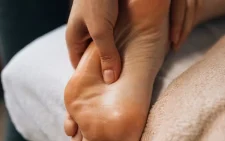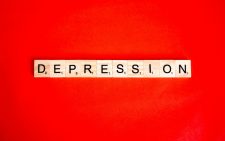Experts call for suicide decriminalisation in social circles

The first time Felicity Odipo* attempted to die by suicide was on her 17th birthday. She was still in school, and struggling to stay sane despite the family pressure back at home.
“I remember thinking my family would be better off without me. This thought had consumed me and it repeatedly rang in my mind. I felt unwanted and unloved by my family,” she recalls.
Felicity attempted to overdose, but her dorm mates found her unconscious and called their teachers who rushed her to hospital. She ended up spending a week at the psychiatric ward.
“When I woke up I was filled with anger. I didn’t want to believe I actually survived it.
I didn’t want to survive it; that is why it haunted me. I spent so many days questioning why my case wasn’t a success,” she says.
Felicity, now 27, describes that the hardest part of dealing with this was going back to school, the fact that she was in a missionary school made the situation worse.
“I was to sit for my Form Four, as a bright student I was sure that they would be lenient and allow me to finish my examinations, but that wasn’t the case.
They told my parents I wasn’t fit to be in school. That is how I ended up transferring to a different school,” she says.
As a child, she experienced violence at home, rejection from her father, emotional pain, and traumatic stress, enough to drive anyone to a dangerous place.
Back at home, starting a conversation around mental health was taboo because of the rift between her parents.
“I didn’t want to stress my mother who was occasionally in and out of the hospital from injuries incurred from my father’s beating.
As the firstborn,I wanted to be the best my mother could ever have and I was determined to be good at it,” she says.
However, this didn’t last long, six years later, this time as a mother, she attempted suicide in the presence of her daughter.
“I was tired of life struggles. Again this time I felt that I wasn’t good enough for her, I had disappointed my parents by giving birth at an early age and I just wanted to leave them alone,” she says.
After an overdose, she woke up at the Nairobi West hospital. She had been in the intensive care unit for over a week, and when she was stable enough she underwent treatment for over five months in the psychiatric ward.
Throughout this period, she was scared she was never going to see her daughter again.
She felt she had disappointed her and that she needed to make it up to her as a parent.
Felicity, now a foodprenuer, says that what she learnt out of this situation is that stigma and criminalisation from the society is high.
“I learnt it was illegal to attempt suicide while at the institution. One time someone told me I would go to prison, and this became my biggest fear.
However, after I was discharged I faced a different form of stigma,” she says.
Felicity recalls how neighbours who saw her being taken to the hospital didn’t want to associate with her.
At one time when she wanted to go to a ceremony at home, her relatives told her not to bother attending because they thought she would attempt suicide again.
“My ex-boyfriend’s family kept me from seeing my daughter. I remember they always said I would harm her. That is how I was denied custody over my five-year-old girl,” she recalls.
Although Felicity had to go through all this, her only hope was to have a good support system that would walk through this path of dealing with voices directing her towards suicide.
High local suicide rate
The International Association for Suicide Prevention initiated World Suicide Prevention Day in 2003 observed every September 10 to raise awareness on suicide and its prevention.
The World Health Organisation says about 800,000 people die from suicide every year.
This means one person every 40 seconds.It is one of the leading causing of death especially among young people and adolescents aged 15 to 35 years
In Kenya, WHO estimates that 1,408 people die of suicide annually or more than four deaths daily, a number higher than what Kenya National Bureau Statistics (KNBS) estimates reported in 2018.
World population ranks Kenya at position 114 among the 175 countries with the highest suicide rates.
WHO reveals this number is greater than the number of lives lost each year through homicide and war combined.
These deaths do not include nonfatal suicide attempts and self-inflicted behaviors (SIBs) and self-inflicted injuries, which occur much more frequently than deaths by suicide.
The true number of suicides is estimated to be higher because some deaths that are thought to be accidents are actually acts of suicide. Planned accidents include single-car accidents where the driver aimed to eliminate their own life.
Although the official numbers of statistics are difficult to get due to underreporting and misreporting of such deaths in part because of their penalties in Kenyan law for attempting as well as stigmatisation.
Recently, legal decriminalisation of suicide is being pursued by the Kenya National Commission on Human Rights and Kenya Psychiatric Association through repealing Penal Code 226.
In many countries globally, suicide attempts are also criminalised to deter populations from suicidal tendencies.
“However, criminalisation has led to seeking help for people experiencing suicidal ideation and their family caregivers,” says Antony Odeck, an advocate.
But is decriminalising suicide enough?
Inner circle stigma
Charity Muturi, who has lived with a mental health condition and who represented patients in the National Task Force On Mental Health last year, says real stigma happens within the primary support systems such as the family, neighbours, churches, and community.
She adds that stigma pushes more family members into suicidal tendencies and mental health conditions.
“Even as we decriminalise it legally, we have a very big gap in our social, cultural and religious environment.
I believe when we succeed in decriminalisation, the interest may increase suicide reporting or suicide cases can continue to increase due to the socioeconomic effects of Covid-19, which can be perceived as increased rates, thus as a failure of decriminalisation,” she says.
She urges the public to decriminalise suicide discussions in their homes and in communities beyond the mental health space where we are so entitled to decriminalisation as a right.
“Rights come with responsibilities, which includes preparing our environment for legal, social, religious, cultural ‘decriminalisation’ or change, this is why we have been engaging Christian, Muslim and Hindu religious leaders through the media during suicide prevention week, to encourage open conversations on suicide” says Charity.
She adds, “We need to provide mental health, social and economic support for groups at high risk of suicide including capital offenders, persons with chronic/terminal illness, poverty.
We also need to support security officers who are requesting for clear identification, intervention and referral systems within police, prison and probation and criminal justice systems.”
Tracy Lumbasi, a mental health advocate says, there are a variety of reasons people opt to die by suicide.
People at risk include those who are disturbed, especially youth and the aged who suffer from mental health disorder. People with a family history of suicide and those who have attempted suicide in the past are more likely to commit suicide.
“Severe anxiety increases the probability of suicide attempts and completions. Suicide may also be triggered by certain situations or events such as a breakup of a romantic relationship (separation or divorce), unemployment or loss of work, jail term, rape, childlessness, death of a loved one, physical illness, loss of business, depression, alcoholism and drug abuse, failure in examinations or loss of privilege,” she says.
Unfortunately, a large number of mental health problems remain undiagnosed in Africa.
Dr Geoffrey Wango, a counselling psychologist and senior lecturer at the University of Nairobi, says a positive hopeful attitude to life grants us a purpose to pursue our dreams.
“People who are healthy, feel loved and cared for are not likely to feel lonely or hopeless and thus will not think about ending their lives through suicide. This is because suicide is sometimes a call for help,” he says.
He adds that many people who have confessed to having thought about suicide may not actually attempt it when they feel someone cares about them.
“The presence of a loving intact family, good friendship, strong social support system for children, teens and the aged decreases the likelihood that a person will think of suicide, or died of it.
The absence of anxiety, depression, substance abuse and mental illness tends to decrease suicide attempts,” says Wango.
He highlights that suicidal behaviours are often quite impulsive and thus unpredictable.
In that case, it is good to take precautionary measures, especially when dealing with persons likely to contemplate suicide.
“Some people may require life coping skills to resolve conflicts. Feelings of hopelessness and persistent negative thoughts about the possibility of something bad happening in life are worrisome and should be dealt with by seeking appropriate help,” he says.
In that case, all underlying psychiatric disorders such as schizophrenia and personality disorders should be treated to decrease short-term and long-term risks of suicide.
In addition to counselling and talk, therapy enables the person to discuss issues that disturb them and have been found very useful in assisting people with suicidal tendencies. Above all, everyone wants to love and to be loved. * Due to stigma, survivors have asked to remain anonymous.















